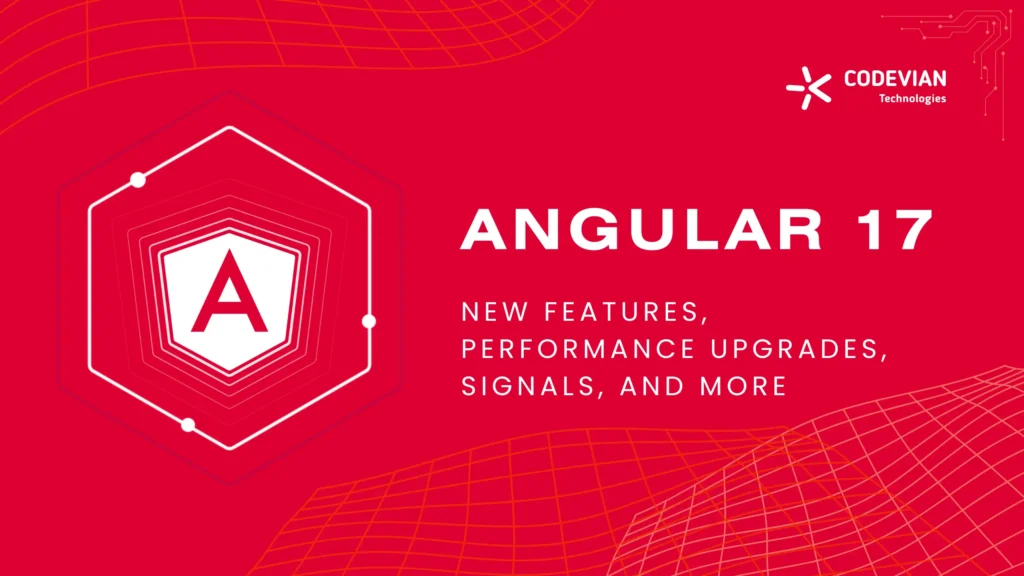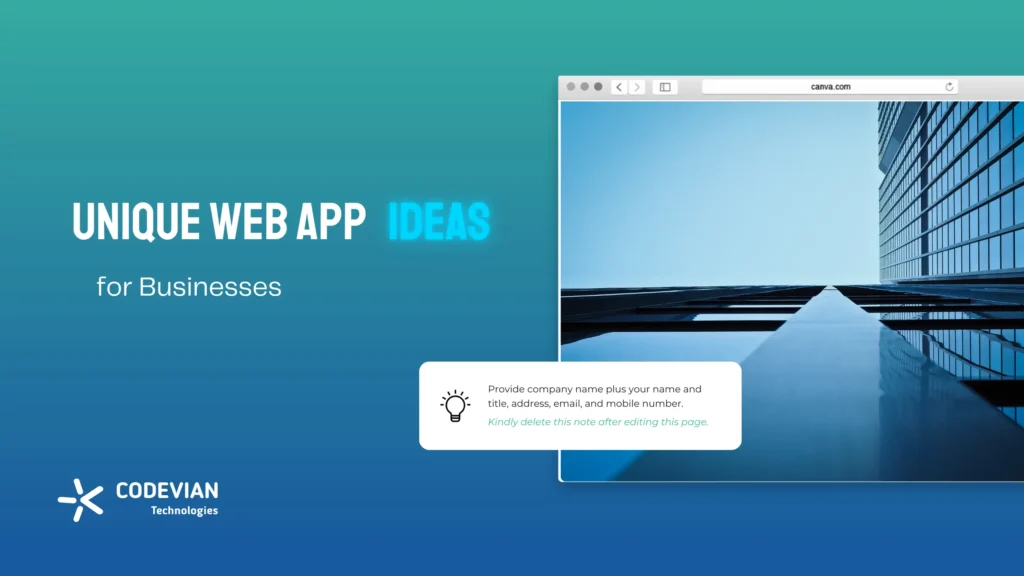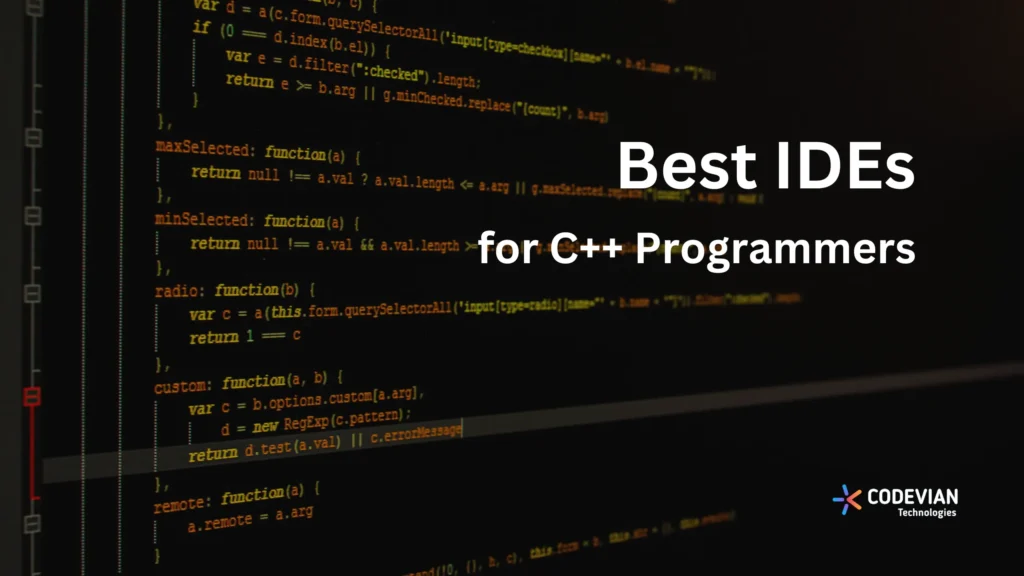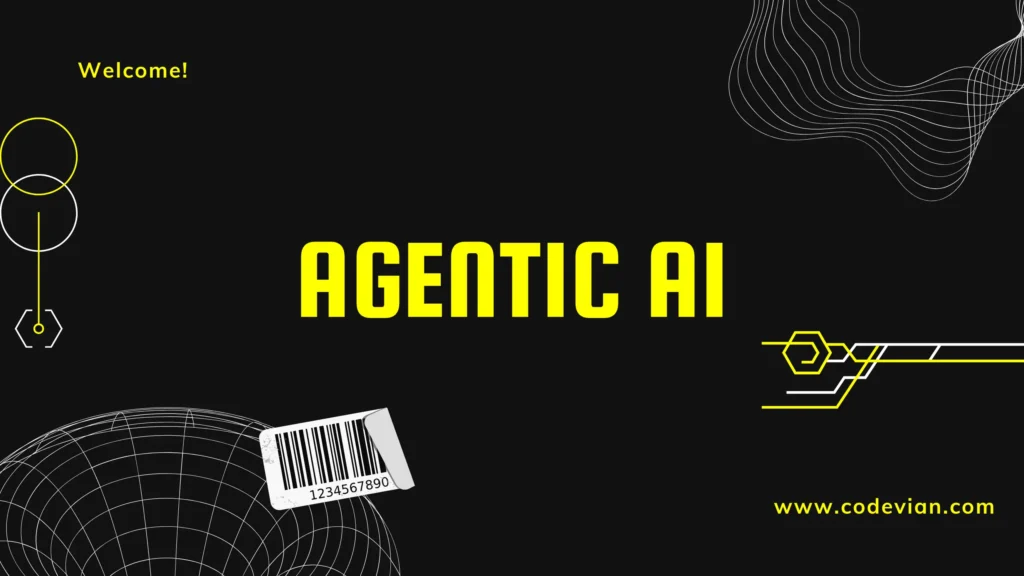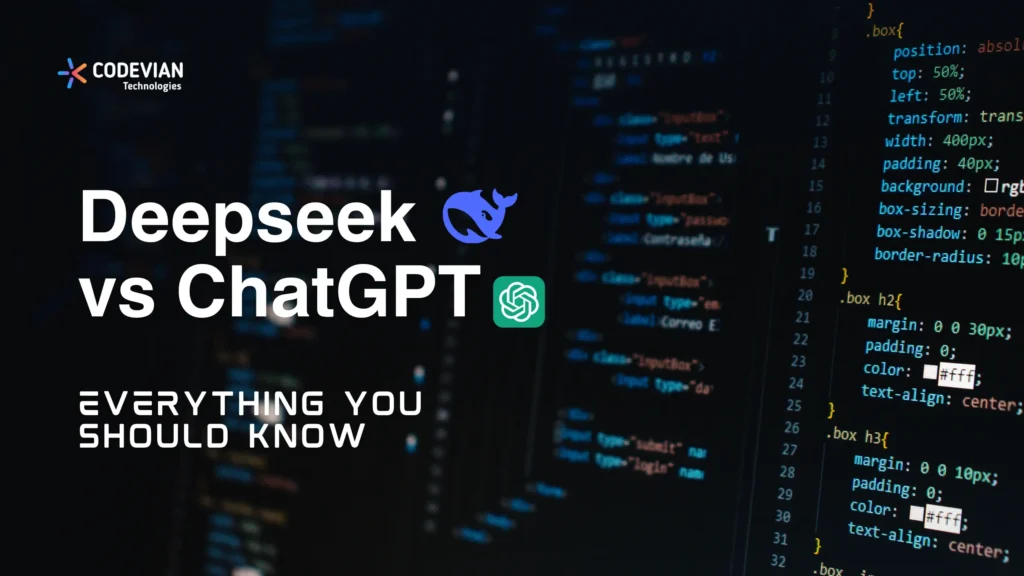| In 2023, people all over the world spent about 154 billion dollars on AI systems. Out of this, the banking sector spent the most—20.6 billion dollars—making it the top industry for AI spending. |
- Explore 250+ unique AI startup ideas in all industries (healthcare, AI/ML, Business, Gaming, Education, Finance & Banking, automobile, cybersecurity, IT, Logistic & supply, real estate, marketing, arts, entertainment and others)
- See some case studies of the use of AI in each industry
- Learn how AI startups can make money
- And see whether you should develop an AI product and how to get the best help in AI app development.
The Current AI Market & Future
Artificial Intelligence (AI) is one of the fastest-growing & most employed technologies today. It is reshaping industries worldwide, especially after the rise of Open AI’s ChatGPT.
According to studies, the market for artificial intelligence (AI) got really big in 2024, growing to over 184 billion dollars—that’s almost 50 billion more than in 2023! And guess what? It’s expected to keep growing fast, reaching an incredible 826 billion dollars by 2030!
In businesses, AI is a game-changer. A study says about 64% of business owners think AI can make customer relationships better. And almost everyone (97%) believes ChatGPT can help their business grow! AI helps companies save time by automating repetitive tasks, improving decision-making, and even helping with hiring and training employees.
China is leading in AI research, while other countries are quickly catching up. Surveys show that by 2061, many experts believe AI will perform tasks better, faster, and cheaper than humans. Companies are already adopting AI to fill gaps in labour and skills and to make their processes more efficient.
AI Startup Ideas for 2025
1. Healthcare
AI is helping doctors and patients by speeding up diagnoses and making healthcare more accessible.
Examples of AI in Healthcare for 2025 (Case Studies)
- IBM Watson Health uses AI to analyze medical data and help doctors make better treatment decisions.
- Zebra Medical Vision uses AI to read medical images and detect diseases like cancer, heart conditions, and more.
- PathAI uses AI to assist pathologists in diagnosing diseases more accurately.
- Tempus uses AI to analyze clinical and molecular data to guide precision medicine.
AI Healthcare Startup Ideas for 2025
- Virtual health assistant for symptom checking.
- AI-based mental health app with guided meditations.
- Disease diagnosis tool using X-rays or scans.
- AI-powered fitness trainer with personalized workouts.
- Pill reminder app with voice assistants.
- Pregnancy tracker with baby development insights using AI.
- Remote doctor consultation app.
- Diet planner that customizes meals for specific health conditions.
- Early warning system for heart health using wearables.
- AI chatbot for mental health support.
- Speech therapy assistant for kids and adults.
- AI app to track and manage chronic diseases like diabetes.
- Patient history tracker for doctors.
- AI-driven lab test analyzer to identify patterns.
- Elderly care app with emergency alert systems.
2. AI/ ML
Machine learning (ML) is a branch of AI that allows computers to learn and improve. Many startups are using ML for personalisation, prediction, and automation.
Examples of AI/ML Applications (Case Studies)
- DataRobot uses AI to automate the machine learning process for businesses, helping them make better predictions.
- H2O.ai uses AI to create open-source machine learning tools for various industries, including finance, healthcare, and retail.
- Google’s AutoML uses AI to automatically design machine learning models for users with no coding experience.
AI/ML Startup App Ideas for 2025
- Personalized learning app for students based on ML.
- Real-time language translation app.
- Fraud detection tool for online payments.
- Social media trend analyzer for businesses.
- Traffic management tool for cities using ML predictions.
- ML-powered weather forecast app for farmers.
- Real estate price prediction tool.
- Document scanning app with AI-based text extraction.
- AI chatbot that improves based on user feedback.
- ML-based plagiarism detection app for writers.
- Financial portfolio optimizer using ML.
- Personalized fashion shopping assistant.
- Energy-saving home automation system.
- AI for stock market trend prediction.
- HR analytics tool to predict employee performance.
Looking for AI product development?
We can help you with everything—from ideas to development—to create your next big thing. Let’s make it happen together!
3. AI in Business
AI is used in businesses to make them smarter and more efficient. Many companies use AI for automation, data analysis, and better decision-making.
Examples of AI in Business (Case Studies)
- Shopify uses AI to provide personalized product recommendations based on customer behaviour.
- HubSpot uses AI for automated marketing and sales funnel management.
- Salesforce uses AI to predict sales trends and customer needs with Einstein Analytics.
- Zapier uses AI to automate repetitive tasks between apps and improve workflow efficiency.
AI App Ideas for Businesses to Try in 2024
- AI-powered virtual business assistant for scheduling and task management.
- Smart hiring tool to analyze resumes and match the best candidates.
- AI sales prediction app to forecast customer demand.
- Automated customer support chatbot for small businesses.
- Invoice management app with auto-detection of errors.
- Competitor analysis tool using AI.
- Business trend analysis app to predict market changes.
- Meeting summary generator with AI transcription.
- AI-based training app to upskill employees.
- Sentiment analysis tool to track brand reputation online.
4. Generative AI
Generative AI can create content like images, text, and music. It’s used in art, gaming, and even marketing.
Examples of Generative AI (Case Studies)
- OpenAI uses generative AI to create language models (like GPT-3) that can write text, generate code, and more.
- DALL-E by OpenAI uses AI to generate images from text descriptions.
- Runway uses AI to generate creative content such as videos, images, and even music with minimal human input.
Generative AI Startup Ideas for 2025
- AI-powered story-writing app for kids.
- Music generator app for custom beats.
- Virtual interior designer for homes using generative AI.
- AI meme creator for social media.
- Personalized recipe generator for meals.
- AI avatar creator for gaming or social profiles.
- Video editing assistant with automated transitions.
- Custom logo design app for small businesses.
- AI-based voiceover generator for videos.
- Generative AI app to create animated cartoons.
- Social media post generator for influencers.
- Personalized greeting card maker with AI art.
- Fashion design app for custom clothing.
- AI-based ad copy generator for marketers.
- 3D model generator for architects and game developers.
5. AI Product ideas
AI products are tools that can solve real-world problems by automating tasks, increasing productivity, or providing new features.
Examples of AI Products (Case Studies)
- Amazon Alexa uses AI for voice recognition and to provide users with personalized responses.
- Nest Thermostat uses AI to learn a user’s heating and cooling preferences and adjust them automatically.
- Tesla Autopilot uses AI to enable self-driving features in cars.
AI Product Ideas for 2025:
- Smart recipe scanner for grocery shopping.
- AI travel planner for creating personalized itineraries.
- AI tool for analyzing sports performances.
- Virtual personal trainer for fitness tracking.
- AI-powered smart notebook for students.
- Real-time speech-to-text transcriber.
- Smart pet camera with AI activity tracking.
- AI handwriting recognition tool for note-taking.
- AI-powered home energy-saving assistant.
- AI book summarizer for quick reading.
- Task prioritizer app for work-life balance.
- AI gardening assistant for plant care.
- Personalized movie suggestion tool.
- Smart email organizer with spam detection.
- AI virtual assistant for organizing online meetings.
6. Gaming
AI is making gaming and entertainment more fun and interactive! It helps create better characters, stories, and even gameplay.
Examples of AI in Gaming (Case Studies)
- NPCs in games like GTA.
- EA Sports uses AI to improve the behaviour of virtual players in video games for a more realistic gaming experience.
- AI-generated levels in games ( eg: No Man’s Sky).
AI in Gaming App Ideas
- AI game character creator.
- AI-powered quiz and trivia games.
- Virtual reality escape rooms with AI puzzles.
- Story-building games using generative AI.
- AI app for creating custom game soundtracks.
- AI chess tutor for beginners.
- Multiplayer strategy games with AI-enhanced levels.
- Voice-controlled adventure games.
- AI board game assistant for rules and tips.
- AR treasure hunt games powered by AI.
7. Education
AI is used in education to help students and teachers personalize learning experiences. It also can automate grading and provide interactive tools for teachers and students.
Examples of AI in Education (Case Studies)
- Duolingo uses AI to personalize language lessons based on user progress.
- Knewton uses AI to provide personalized learning pathways for students.
- Coursera uses AI to recommend courses for each student.
- Squirrel AI uses AI for adaptive learning to help students learn at their own pace with customized lessons.
AI App Ideas in Education
- AI tutor for solving math problems step-by-step.
- Language learning app with AI-based speech practice.
- Interactive AI-powered quiz games for classroom use.
- AI homework helper that explains tough concepts.
- Adaptive test preparation app that focuses on weak areas.
- Virtual science lab using AI for experiments.
- AI flashcard creator for memorization.
- AI reading companion that explains complex words.
- Automated essay grader for teachers.
- Personalized career guidance app based on interests.
- AI note-taking tool that organizes key points.
- Virtual teacher assistant for lesson planning.
- AI-based group project manager for students.
- Coding app that gives real-time feedback to beginners.
- AR learning app for history or geography lessons.
8. Finance & Banking
AI is changing finance by improving security, automating transactions, and providing smarter investment tools.
Examples of AI in Finance (Case Studies)
- PayPal uses AI to detect fraudulent transactions by analyzing patterns in customer behaviour.
- JPMorgan Chase uses AI to predict market trends and analyze financial data.
- Square uses AI to offer smart payment solutions that help small businesses manage their sales and inventory.
- Zest AI uses AI to help lenders assess risk and make smarter lending decisions.
Finance & Banking App Ideas Using AI
- AI app to track spending and suggest saving tips.
- Fraud detection tool for credit card transactions.
- AI-powered budget manager with visual graphs.
- Investment advisor that recommends stocks or funds.
- AI app for personalized loan recommendations.
- Expense categorizer that organizes receipts automatically.
- Real-time currency exchange rate tracker with AI.
- Tax calculator for small businesses using AI.
- AI-powered mortgage rate comparison tool.
- Chatbot for banking inquiries like balance checks.
- Bill payment reminder with auto-pay options.
- Risk analysis tool for crypto investments.
- AI-driven credit score improvement app.
- Financial goal-setting app with step-by-step plans.
- AI-based insurance policy comparison tool.
9. Automobile industry
AI is making cars smarter with self-driving technology, predictive maintenance, and connected systems.
Examples of AI in Automobiles (Case Studies)
- Tesla uses AI in its self-driving cars to drive, avoid obstacles, and improve safety.
- Waymo uses AI to build autonomous driving systems that are used in ride-hailing services.
- Ford uses AI for predictive maintenance in vehicles to help detect and fix issues before they become problems.
- BMW uses AI to improve the driving experience through personalized settings and advanced driver assistance systems.
Automobile App Ideas Using AI
- AI-powered route optimizer for faster travel.
- Smart parking assistant that finds empty spots.
- Predictive car maintenance app to avoid breakdowns.
- Virtual driving coach to improve driving habits.
- AI-based fuel efficiency tracker.
- Traffic accident prevention system using AI predictions.
- AI app for carpooling suggestions based on location.
- Smart dashboard assistant for voice commands.
- AI-enhanced road safety app for bad weather alerts.
- Driver fatigue detection app with alerts.
- Car insurance premium calculator using AI analysis.
- AI-powered EV charging station finder.
- AR-based car showroom app for exploring vehicles.
- Smart repair cost estimator using AI.
10. Cybersecurity
AI helps secure online systems by detecting threats faster and predicting attacks before they happen.
Examples of AI in Cybersecurity (Case Studies)
- Darktrace uses AI to detect and respond to cyber threats in real time by analyzing network traffic.
- CrowdStrike uses AI to identify and block malware and other cyber attacks across networks.
- Symantec uses AI for real-time threat detection and to secure data.
- IBM Security uses AI to help identify vulnerabilities and prevent data breaches.
Cybersecurity App Ideas Using AI in 2025
- AI-powered phishing detection tool for emails.
- Real-time malware scanner for devices.
- AI app to predict and block hacking attempts.
- Identity theft prevention tool using AI alerts.
- AI-based VPN that adapts to user behaviour.
- App to detect and block fake websites.
- AI-enhanced firewall for small businesses.
- Data breach notification tool for personal accounts.
- Smart webcam protection app with AI monitoring.
- AI app to analyze suspicious links in real-time.
- Cyberattack risk assessment tool for companies.
- Mobile app security scanner for vulnerabilities.
- Dark web monitoring tool for personal data leaks.
11. Software Development
AI helps software developers save time by automating repetitive tasks, finding bugs, and improving the overall quality of the code.
Examples of AI in Software Development
- GitHub Copilot helps developers write code faster with AI suggestions.
- DeepCode detects bugs and suggests improvements in codebases.
Software development App Ideas using AI
- AI code assistant to auto-complete and suggest code snippets.
- Bug detection app to fix errors quickly.
- Code refactoring tool for cleaner and optimized code.
- AI test case generator for faster software testing.
- Debugging assistant to pinpoint and solve issues faster.
- Smart project timeline estimator for software teams.
- AI-powered API builder for faster integrations.
- Real-time collaboration app with AI code suggestions.
- Performance optimized to improve application speed.
- Code translation tool to convert between programming languages.
- Smart documentation generator for coding projects.
- AI security scanner to find vulnerabilities in code.
- Dependency manager to suggest and manage libraries.
- AI UX/UI design assistant for better app interfaces.
- Campaign performance tracker to improve dev team workflows.
12. Logistics and Supply Chain
AI makes logistics and supply chains smarter by predicting demand, managing inventory, and optimizing delivery routes. It helps save time, money, and resources.
Examples of AI in Logistics (Case Studies)
- Amazon uses AI in its warehouse management system to optimize inventory and order picking.
- Maersk uses AI to improve shipping logistics by predicting the most efficient routes and reducing delays.
- UPS uses AI for route optimization to save time and reduce fuel consumption for delivery trucks.
- FedEx uses AI for predictive maintenance, ensuring that its delivery fleet stays in top shape.
Logistic and Supply Chain App Ideas using AI
- AI-powered route optimization app for deliveries.
- Inventory tracking app with real-time AI updates.
- Predictive maintenance app to avoid vehicle breakdowns.
- Smart demand forecasting app for stocking products.
- Freight matching tool to connect shippers and carriers.
- AI-powered warehouse automation assistant.
- Sustainability tracker to reduce shipping carbon footprint.
- AI tool for faster customs clearance and documentation.
- Delivery time estimator app using AI predictions.
- Reverse logistics manager for smoother product returns.
- Load optimization app to maximize cargo space.
- Risk analyzer to detect supply chain disruptions.
- AI-powered multi-modal transport planner.
- Dynamic pricing tool for real-time shipping costs.
- Digital twin app to simulate and improve supply chain operations.
Decided on your AI startup idea?
Let us help build an amazing mobile app for you! From planning to launch, we’ll handle design, development, and AI integration. Get in touch with our team today!
13. Online Businesses & E-commerce
AI can help online businesses grow by automating tasks, improving customer engagement, and analyzing data.
Examples of AI in Online Businesses:
- Shopify uses AI for product recommendations and to improve customer experience.
- Etsy uses AI to recommend personalized products to buyers based on browsing and purchase history.
- Wix uses AI to help users design their websites by analyzing content and providing suggestions for improvement.
- BigCommerce uses AI to help online merchants optimize their stores and increase conversions.
Online Businesses & E-commerce App Ideas with AI
- AI-powered product recommendation tool.
- Smart chatbot for e-commerce sites.
- AI app for creating personalized email campaigns.
- Inventory management app with demand forecasting.
- AI tool to analyze website traffic patterns.
- Price optimization app for online stores.
- Smart ad creator for social media platforms.
- AI-powered customer review analyzer.
- Virtual storefront designer for small businesses.
- AI app to track abandoned shopping carts.
- Social media post scheduler with AI insights.
- AI-driven affiliate marketing tracker.
- Website personalization tool for visitors.
- AI tool to track competitor pricing.
- Voice-enabled shopping assistant for e-commerce.
14. Data Science and Engineering
AI can simplify data science and engineering by helping with analysis, identifying trends, and speeding up development processes.
Examples of AI in Data Science (Case Studies)
- H2O.ai helps data scientists and engineers build machine learning models and analyze large datasets quickly.
- DataRobot automates machine learning and data modelling processes to save time for data scientists.
- Google Cloud AI provides tools for data science teams to create custom AI models for analyzing data.
- KNIME helps businesses analyze big data with machine learning models and data processing tools.
Data Science and Engineering App Ideas
- Automated data cleaning tool for messy datasets.
- AI-powered data visualization app for charts and graphs.
- Machine learning model generator for beginners.
- AI-driven predictive analytics tool for businesses.
- Real-time anomaly detection for data streams.
- AI app to simplify database management for engineers.
- Data clustering tool for pattern recognition.
- AI-based coding assistant for Python or R.
- Smart dashboard creator for business insights.
- AI-driven ETL pipeline tool.
- AI app to monitor and optimize data servers.
- Natural language interface for querying datasets.
- AI-powered time series analysis tool.
- Automated feature engineering app for machine learning.
- Intelligent survey analysis tool for businesses.
15. Marketing
AI in marketing can help marketers improve audience targeting, create content, and analyze campaign performance faster.
Examples of AI in Marketing (Case Studies)
- Cortex uses AI to help marketers analyze and optimize social media content for better engagement.
- Klaviyo uses AI to provide personalized email marketing automation based on customer behaviour.
- Crimson Hexagon uses AI to monitor social media conversations and provide insights about brand perception.
- Albert AI uses AI to run marketing campaigns, optimize ad spend, and analyze audience behaviour in real time.
AI apps for marketers:
- AI content generator for blog posts or ads.
- Smart audience targeting app for ad campaigns.
- AI-powered email personalization tool.
- Social media trends tracker with AI predictions.
- AI tool to generate catchy headlines.
- Campaign performance analyzer with suggestions.
- Chatbot for handling customer queries.
- AI-powered social media scheduling app.
- Image and video ad creator with AI assistance.
- Keyword research tool for SEO using AI.
- Personalized product recommendation engine.
- AI app for split testing marketing campaigns.
- Smart influencer collaboration finder based on niche.
- Real-time competitor analysis app.
- AI-driven sentiment analysis for customer reviews.
16. Real Estate
AI makes buying, selling, and renting properties easier by analyzing market trends, predicting prices, and personalizing recommendations for buyers.
Examples of AI in Real Estate (Case Studies)
- Zillow uses AI to estimate property values.
- Redfin uses AI for personalized property recommendations.
AI Apps for Real Estate
- AI property value estimator for buyers and sellers.
- Smart home search app with personalized recommendations.
- Virtual home staging app using AI for interior design.
- Real-time market trend analyzer for property investments.
- AI-powered mortgage and loan advisor.
- Smart app for matching renters with ideal landlords.
- AI chatbot for answering real estate queries 24/7.
- Property comparison tool based on location, price, and features.
- Home renovation cost predictor using AI.
- Virtual property tour app with AI commentary.
- Smart neighbourhood analyzer for schools, safety, and amenities.
- AI tool for identifying upcoming real estate hotspots.
- Tenant screening app with AI background checks.
- Dynamic rent pricing app for landlords.
- Smart property management tool for tracking repairs and tenants.
17. Manufacturing
AI helps manufacturers improve production, reduce waste, and predict machine breakdowns. It makes factories smarter, more efficient and most importantly — safe.
Examples of AI in Manufacturing (Case Studies)
- Siemens uses AI to predict equipment maintenance needs.
- Tesla employs AI in its automated car production lines.
AI Apps for the Manufacturing Industry
- AI-powered quality inspection tool to detect defects.
- Predictive maintenance app to prevent machine failures.
- Smart supply chain optimizer for better inventory management.
- AI-powered factory layout planner for maximizing efficiency.
- Energy usage tracker with AI-powered recommendations.
- Smart production scheduler to reduce downtime.
- AI app for automating repetitive assembly line tasks.
- Digital twin app to simulate and optimize production processes.
- Waste reduction tool to track and minimize resource wastage.
- Worker safety app with real-time alerts using AI.
- AI-powered material requirement predictor.
- Robot coordination app for collaborative manufacturing tasks.
- AI-driven tool for analyzing production line bottlenecks.
- Smart pricing tool for real-time cost calculations.
- Sustainability tracker for eco-friendly manufacturing.
18. Travel
AI can make travel easier by suggesting destinations, planning trips, and personalizing experiences. It can help people save time, and money, and offer a stress-free experience while exploring the world.
Examples of AI in Travel (Case Studies)
- Expedia uses AI for smart itinerary suggestions.
- Hopper predicts the best time to book flights.
AI Apps for Travel
- AI trip planner that builds custom itineraries.
- Smart travel budget tracker based on your plans.
- AI-powered flight and hotel price predictor.
- Real-time travel assistant with translation and navigation.
- Personalized destination recommendation app.
- Smart packing assistant suggesting what to bring based on weather and trip type.
- AI-driven visa and travel document manager.
- Virtual travel guide for exploring places from home.
- Delay and cancellation predictor for flights or trains.
- Local activity finder based on your preferences.
- AI app for connecting travellers with local guides.
- Smart travel safety checker for health and political conditions.
- Travel carbon footprint calculator with eco-friendly tips.
- AI-powered group trip organizer.
- Smart luggage tracker for lost baggage recovery.
19. Entertainment Industry
AI is transforming entertainment by personalizing recommendations, creating content, and improving production efficiency. It can help audiences discover what they love faster and make content creation/suggestions smarter.
Examples of AI in Entertainment (Case Studies)
- Netflix uses AI for personalized recommendations, suggesting shows and movies based on user preferences.
- Spotify uses AI to recommend music and create personalized playlists based on listening habits.
- Twitch uses AI for personalized content recommendations and live streaming quality adjustments.
AI Apps for the Entertainment Industry
- Personalized movie or TV show recommendation app.
- AI music composer that creates custom soundtracks.
- Virtual casting app for matching actors with roles.
- AI tool for editing and colour grading videos automatically.
- AI-powered script analysis for predicting a story’s success.
- Smart karaoke app with real-time vocal enhancement.
- AI app for generating movie trailers automatically.
- Music remixer that uses AI to create mashups.
- Real-time language translator for subtitles and dubbing.
- AI-powered fan engagement platform for celebrities.
- Smart playlist creator based on mood or activity.
- App to predict box office performance for movies.
- AI character animation assistant for games and movies.
- Story idea generator for writers using AI.
- AI-powered recommendation engine for niche content, like indie films or underground music.
20. Artists and Musicians
AI is helping artists and musicians create, edit, and share their work in innovative ways.
Examples of AI for Creators (Case Studies)
- Amper Music uses AI to help musicians create original music tracks with different genres and styles.
- DeepArt uses AI to transform your photos into artworks inspired by famous painting styles.
- Aiva Technologies uses AI to compose emotional music for films, games, and commercials.
- JukeBox by OpenAI uses AI to generate music tracks in various genres and styles.
App Ideas using AI for Artists and Musicians
- AI music generator for custom background tracks.
- AI-powered video editor for quick effects.
- Virtual art gallery with AI-generated collections.
- AI tool for mixing and mastering music tracks.
- Lyrics generator for budding songwriters.
- AI-based voice training app for singers.
- Smart photo editing app for social media.
- AI-powered beat-making tool for musicians.
- Real-time collaboration tool for artists with AI suggestions.
- AR painting app for digital canvases.
- AI tool to design album covers.
- Music recommendation app for indie artists.
- AI-based storytelling app for comic creators.
- Smart portfolio creator for visual artists.
- AI tutorial app for learning instruments.
Need Help On Your Next Dream Project?
Let us help build an amazing mobile app for you! From planning to launch, we’ll handle design, development, and AI integration. Get in touch with our team today!
How can AI startups make money?
AI startups can make money in a lot of ways by using their technology to solve real-world problems. Here are some ways how:
- Selling AI software or apps: One of the most common ways AI startups make money is by creating software or apps that businesses or people can buy and use. For example, you can create an app that helps companies predict future sales or an AI tool that writes emails for marketers.
- Offering AI as a service (AIaaS): AI startups can also offer their technology as a service. This means businesses pay for using the AI tools on a monthly or yearly basis. This is similar to how people pay for streaming services like Netflix, but instead, they pay to use AI tools like data analysis or customer support bots.
- Consulting services: Many AI startups make money by offering consulting services. This means they help other businesses use AI in their daily operations. For example, a startup can advise a company on how to use AI for better customer service or to improve their production line.
- Data business: Some AI startups collect valuable data and sell it to other businesses. Companies do pay to access this data to improve their marketing or learn more about their customers’ needs.
- Partnerships and Collaborations: AI startups can team up with larger companies to develop AI products or solutions. These partnerships can bring in money through shared profits or development funds.
In short, AI startups can make money by creating useful technology and offering their expertise to help other businesses succeed. The more valuable and unique their AI tools are, the more businesses will want to pay for them!
What do Companies use AI for?
Companies use AI in many different ways to make their work easier, faster, and smarter. AI helps businesses do a lot of repetitive tasks (like entering data, answering customer questions, and handling admin work) faster and automatically — which saves time and effort.
Companies use AI to make work easier, faster, and smarter by automating boring tasks like entering data, answering customer questions, and handling admin work.
This saves time and effort, letting employees focus on important things like coming up with new ideas.
Examples of AI in action:
- Vodafone uses an AI chatbot called TOBi to answer questions, help customers pay bills, or fix problems like resetting login info, making customer service quicker and easier.
- Tesla uses AI in its cars through the Autopilot system, which can drive and make decisions based on traffic and road conditions.
- Netflix uses AI to suggest movies and TV shows based on what you’ve watched before.
- Spotify uses AI to recommend music and create custom playlists based on your listening habits.
- Beyond simple tasks, AI helps businesses predict trends, personalize customer experiences, and make operations more efficient.
- Some companies even build their entire business around AI!
Should You Develop an AI Product?
The idea of creating an AI mobile app sounds exciting, especially with how much AI is changing the world. AI can make many tasks easier and help identify major issues faster. In fact, businesses use AI in things like Help Desk software to automatically organize problems and prioritize them based on how often certain issues happen.
However, creating a good AI product isn’t as simple as it seems. It’s not like flipping a switch and expecting everything to work perfectly. There can be mistakes or inaccuracies in the AI that can make users unhappy, and that’s a big problem. You don’t want to spend time and money developing something that people don’t want or need.
Before you dive into building your AI product, it’s important to do research and make sure there is a real demand for your idea. Many startups fail because they skip this step. They build something without testing it or understanding what people truly need. So, before starting, you need to ask yourself, “Is this something that will solve a real problem?”
To make sure your idea will succeed, you must test it, ask for feedback, and check if it’s something people will actually use. If you take the time to research, plan, and prioritize features carefully, you’ll have a much better chance of making your AI product a hit.
How Codevian Can Help
At Codevian, we specialize in turning your AI ideas into real products that people love to use. Whether you’re looking to build an AI-powered mobile app, machine learning software, or AI-based software for automation, we’ve got you covered.
We help you every step of the way—from researching your target audience to prototyping, designing, and launching a successful app. Our team will ensure your product is built with precision, avoiding common mistakes and making it efficient, user-friendly, and scalable.
If you have an AI app idea, let’s bring it to life together! Contact us to learn more.

